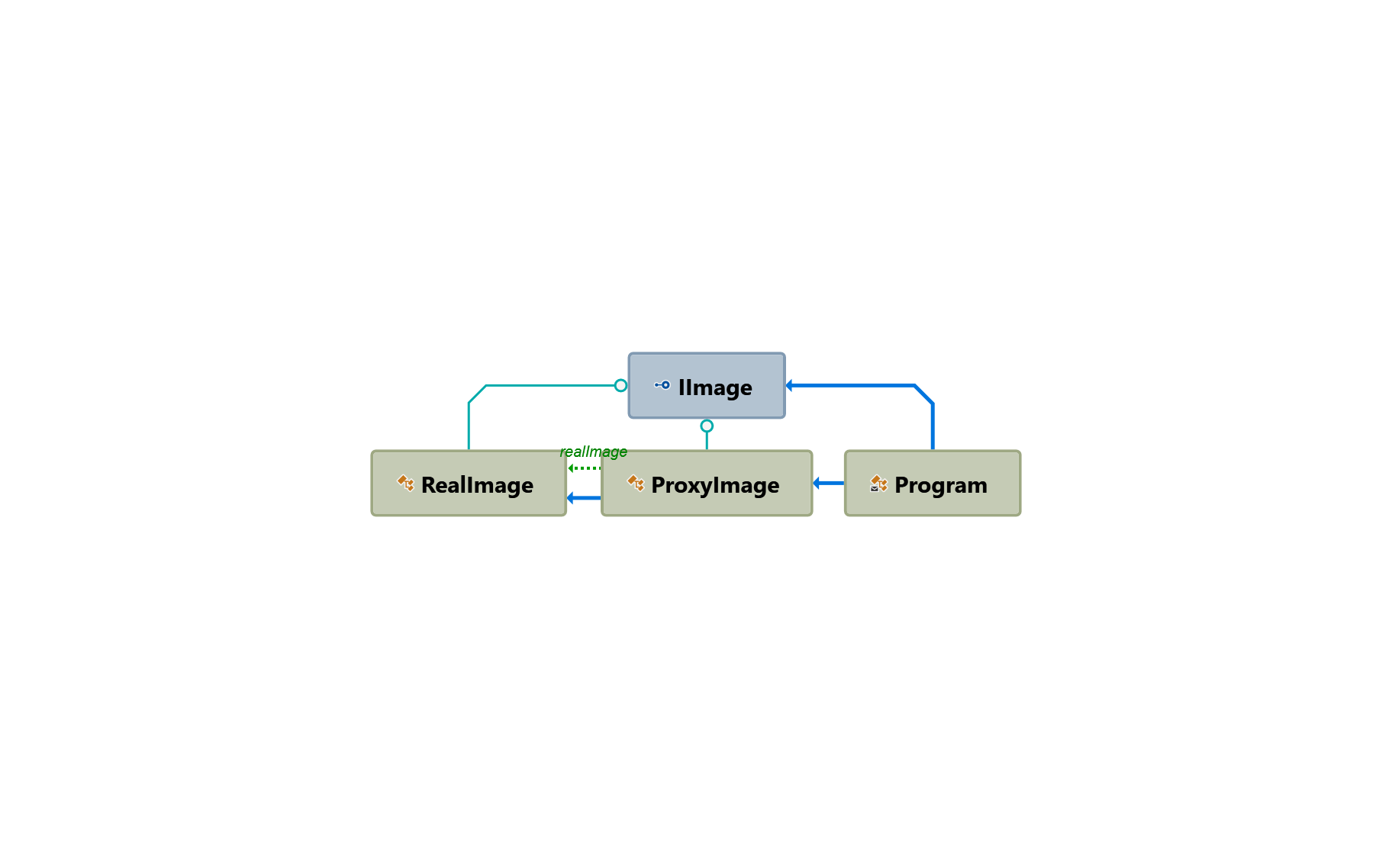设计模式系列 - 代理模式
通过创建现有对象的对象,以便向外界通过访问接口,这种模式我们称之为代理模式
介绍#
代理模式属于结构型模式,通过在对象与对象之间添加一个代理中间层来到达对目标对象的间接访问。
类图描述#
由上图可知,我们通过定义一个基本接口来约束业务行为,然后定义具体的业务实现该接口,最后通过定义一个代理类来协调上层和具体业务实体之间的访问,从而使上层也能访问到下层对象。
代码实现#
1、创建接口
public interface IImage
{
void Display();
}
2、实现接口
public class RealImage : IImage
{
private string fileName;
public RealImage(string fileName)
{
this.fileName = fileName;
LoadFromDisk();
}
public void Display() => Console.WriteLine($"Displaying:{fileName}");
private void LoadFromDisk() => Console.WriteLine($"Loading:{fileName}");
}
3、定义代理类
public class ProxyImage : IImage
{
private RealImage realImage;
private string fileName;
public ProxyImage(string fileName)
{
this.fileName = fileName;
}
public void Display()
{
if (realImage == null)
{
realImage = new RealImage(fileName);
}
realImage.Display();
}
}
4、上层调用
class Program
{
static void Main(string[] args)
{
IImage image = new ProxyImage("test.png");
image.Display();
//继续访问时不会创建新对象
image.Display();
Console.ReadKey();
}
}
总结#
当上层访问下次对象时,由于业务的需要,我们需要对下层对象进行一个处理,这个时候可以考虑使用代理模式来解决,这个模式带来的好处是保证了现有底层对象不变的情况下进行了访问控制。
作者:hippiezhou
出处:https://www.cnblogs.com/hippieZhou/p/10055048.html
版权:本作品采用「署名-非商业性使用-相同方式共享 4.0 国际」许可协议进行许可。
Find Anyway
分类:
0x05 设计模式
Buy me a cup of coffee ☕.





【推荐】国内首个AI IDE,深度理解中文开发场景,立即下载体验Trae
【推荐】编程新体验,更懂你的AI,立即体验豆包MarsCode编程助手
【推荐】抖音旗下AI助手豆包,你的智能百科全书,全免费不限次数
【推荐】轻量又高性能的 SSH 工具 IShell:AI 加持,快人一步
· 如何编写易于单元测试的代码
· 10年+ .NET Coder 心语,封装的思维:从隐藏、稳定开始理解其本质意义
· .NET Core 中如何实现缓存的预热?
· 从 HTTP 原因短语缺失研究 HTTP/2 和 HTTP/3 的设计差异
· AI与.NET技术实操系列:向量存储与相似性搜索在 .NET 中的实现
· 周边上新:园子的第一款马克杯温暖上架
· Open-Sora 2.0 重磅开源!
· 分享 3 个 .NET 开源的文件压缩处理库,助力快速实现文件压缩解压功能!
· Ollama——大语言模型本地部署的极速利器
· DeepSeek如何颠覆传统软件测试?测试工程师会被淘汰吗?